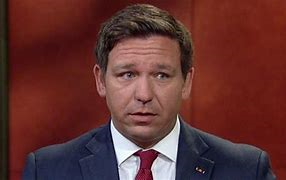I'm not always moved to do a "look at the year" post or a "predictions for the upcoming year" post. A lot of these compilations are meant to be a way to lessen workload at a busy time, but as anyone who has done the work can tell you, it doesn't actually lessen anything.
Plus, the new year is one of those things that we humans made up and then tried to imbue with great weight and importance, as if the next 24 hours are somehow more significant than any other.
They aren't. We draw a line in the sand and then expect the waves to honor it when they come rolling in.
That's more evident than ever this year. Covid will not be marking the new year, just as it failed to mark the last new year. And why should the passing of Betty White on this last day of the year be extra bitter, except that we make it so by drawing the calendar lines where we currently choose to. Almost a century, and all of it well spent.
But I do honor the impulse to stop and look back, look forward, and take a breath at various points in the year. Birthdays. Anniversaries. Why not the New Year, since we've all agreed to more or less do so at the same time?
It has been a rough time for public education. Lots of vultures have decided that the pandemic is their signal to swoop, hoping they can finally hurry along a hoped-for demise and grab a treasured piece of the carcass. Weak, cowardly, and just plain bad administrations have been caught in a troubled time, an occasion that they are unwilling or unable to rise to. Public schools reflect the society of their time, and right now our nation is managing to have the worst response to a public crisis that we've ever had in our history.
And yet, I feel hopeful about public education. First, much of the general panic is the result of our new media, which creates such a droning buzz that folks now have to scream bloody murder and apocalyptic terror to break through and claim their market share and/or political clout. Turn off the media noise (even if, like me, you're a tiny part of it) and pay attention to the world around you, the people around you, and you can see something of beauty and value in the world. There are things, and people, worth embracing, supporting, cheering.
That means that going forward, we can find stars to guide us, even if we are surrounded in noise and smoke and an unhelpful swath of human-made fog. And for me, public education will always be part of that.
It's an amazing thing, an astonishing achievement, and when you consider what we've set out to do as a nation--to provide a decent, elevating, heartening, useful education for every single child in this country--it's no wonder that we've often stumbled. It's a huge undertaking, usually under-supported and under-resourced and yet, still chugging forward. To help every child better understand and grasp their best strengths, to fully become themselves, to learn how to be fully human in the world--that's a bold and beautiful goal, a worthy goal. Nobody--no parent, teacher, child--who pursues that goal should ever be ashamed to rise in that pursuit.
There are times when the future does not rise clearly to meet us, where the road ahead is obscured and, frankly, a bit scary. But when you've got worthwhile work to do, and when you are focused on lifting up your fellow travelers on this globe spiraling through the infinite dark--that is not a bad thing. There is certainly work as worthwhile as teaching, but nothing I can think of is more so. Never doubt, teachers, that you are doing good work. I know there's a chorus screaming, seemingly daily, that you are some kind of lazy, incompetent slacker who entered the field only because you thought was an easy path to a life of wealth and leisure. Those people are full of it; you are doing important work, work that's worth doing, work that is more valuable than, say, spending your days trying to panic people into giving you power.
The coming week is looming, unpleasant, uncertain, a school year with no clear finish line in sight and no certain path forward. I don't claim to have any brilliant solutions. But I feel certain of this-- if you can say that you are doing important, valuable work to the very best of your ability, and you are taking care of the people around you with the strength and heart that you have, then you are making good use of the short time you have on the planet, regardless of what numbers show up on your calendar. You and I may not hit a century, may not even get close enough to feel cheated if we come just 18 days short, but if our days are well spent, then that'll be pretty damn okay.
Check the past to see where you've been and what you owe, and look forward to see the stars that guide you. Breathe. Clear your head and listen to your heart. here we go, one day at a time, until they stack up to another year. Spend it doing work worth doing. Happy New Year.













